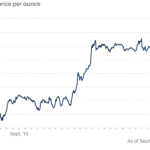In a groundbreaking achievement for the Swiss banking system, PostFinance, Sygnum Bank, and UBS have reported the execution of what they deem the first legally binding interbank payment using bank deposits on a public blockchain. This innovative step was part of a feasibility study led by the Swiss Bankers Association (SBA) that aimed to explore the viability of blockchain technology for traditional banking operations.
The study specifically tested a “deposit token,” which serves as a blockchain-based representation of payment instructions intended for cross-bank transactions as well as the delivery versus payment (DvP) settlement of tokenized assets. According to the official results, settlement finality was achieved through the Swiss Interbank Clearing (SIC), while on-chain smart contracts managed the transaction process on a permissioned public blockchain.
Legally, the token is not classified as a new form of money. Instead, it functions as a standardized payment instruction under Swiss law, facilitating the debiting of one bank account and the crediting of another off-chain, with on-chain transactions triggering settlement backed by SIC without moving financial claims.
The findings highlighted the utilization of a shared Ethereum smart contract equipped with role-based controls, allowing for multi-bank fungibility. The report also indicated the integration of compliance checks for anti-money laundering (AML), counter-terrorism financing (CTF), and sanctions. Two use cases successfully passed the testing phase: one involving a customer-to-customer payment across different institutions and another resembling an escrow transaction that exchanged deposit tokens for tokenized assets with automatic execution.
However, the report also underscored several limitations, including dependence on off-chain core banking systems, manual integrations, and a non-native design. It proposed future steps, such as investigating “native” on-chain master records, potential integration with wholesale central bank digital currencies (CBDCs), automated real-time gross settlement (RTGS) triggers, and greater participation from banks and authorities to enhance scalability.
UBS expressed optimism regarding the outcomes, asserting that the interoperability of bank money via public blockchains can indeed become a tangible reality, which aligns with Switzerland’s ongoing efforts toward financial tokenization.
This development marks a significant moment in the evolution of banking and blockchain technology in Switzerland, setting the stage for potential future innovations in the sector.







